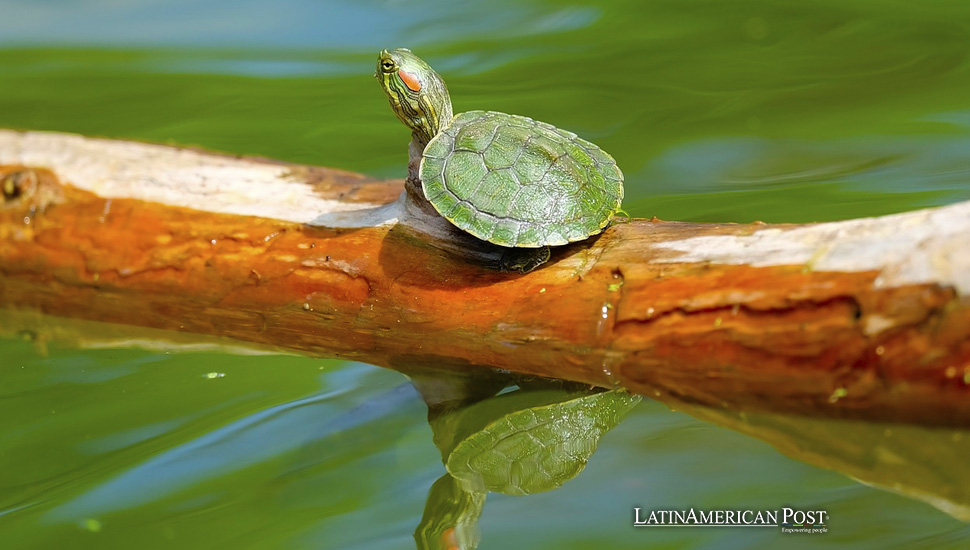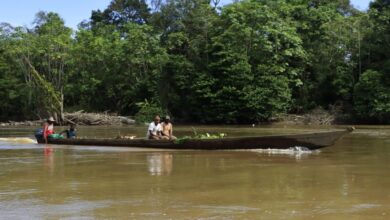River Turtle Populations Increase Thanks to the Community in Ecuador

River turtle populations are increasing thanks to the Charapas Community Management Program (CCMP) that is developed in the community of Zábalo, within the Ecuadorian Cuyabeno Fauna Production Reserve, aimed at the management of river turtles Podocnemis unifilis and P. expands
Collaborative Evaluation: Positive CCMP Results
The National Institute of Biodiversity of Ecuador (Inabio) reported this Thursday that together with researchers from the World Wildlife Fund (WWF), Fundación Sobrevivencia Cofán, and the Zábalo community, they carried out a temporary evaluation of the CCMP, which has been implemented for 26 years.
This study reflects an increase in P. unifilis population estimates, which points to a successful management strategy based on an effective initial technique under community leadership.
This “is crucial to maintain the integrity of the regional ecosystem and to preserve each life stage of river turtles throughout their distribution, as well as to expand conservation efforts for P. expansa,” he said in a statement.
Overcoming Past Challenges: Comprehensive Evaluation of the CCMP Program
Despite the long history of the program, which was implemented after a significant decline in populations of these river turtles, limited monitoring and validation processes motivated a comprehensive evaluation of the effectiveness of management practices to contribute to strengthening the program. community.
This evaluation considers temporal trends of population estimators for nesting data (density, abundance, hatching success, offspring production) between 1994 and 2019 for P. unifilis.
In the case of P. expansa, some available data was collected since it has not been the main focus of the community program, Inabio explained in the letter.
The results also highlight a positive temporal trend in the P. unifilis population estimators, and a consistently high hatching success over time (81%) is highlighted, suggesting an important contribution of the program to conservation.
However, it is imperative to conduct more research to evaluate specific population trends by age range and improve monitoring and management strategies for the relatively rare P. expansa, he notes.
Endangered species
Turtles of the genus Podocnemis are aquatic reptiles that inhabit the Amazon basin as well as other continental ecoregions.
P. expansa and P. unifilis are locally assessed as ‘Critically Endangered and Vulnerable Species’, respectively, and listed under Appendix II of the CITES convention, mainly due to the excessive and constant consumption of eggs and meat by local communities along the nesting beaches in the region.
Currently, this program involves the participation of local families in monitoring the species.
Natural factors
In addition to the reduction of small and large Podocnemis, the program has analyzed the influence of natural factors that negatively affect the survival and success of nests, such as predation events and flooding.
Also read: Un derrame de hidrocarburos afecta una playa en el norte de Venezuela, según activistas
Given its effectiveness, the CCMP has promoted actions in other localities in the Ecuadorian Amazon, such as Playas de Cuyabeno, Zancudo Cocha, Yasuní, and Tiputini, through the support of different institutions. Among these institutions are the Natura Foundation, the Cofán Survival Foundation, the World Wildlife Fund, and the Wildlife Conservation Society.




